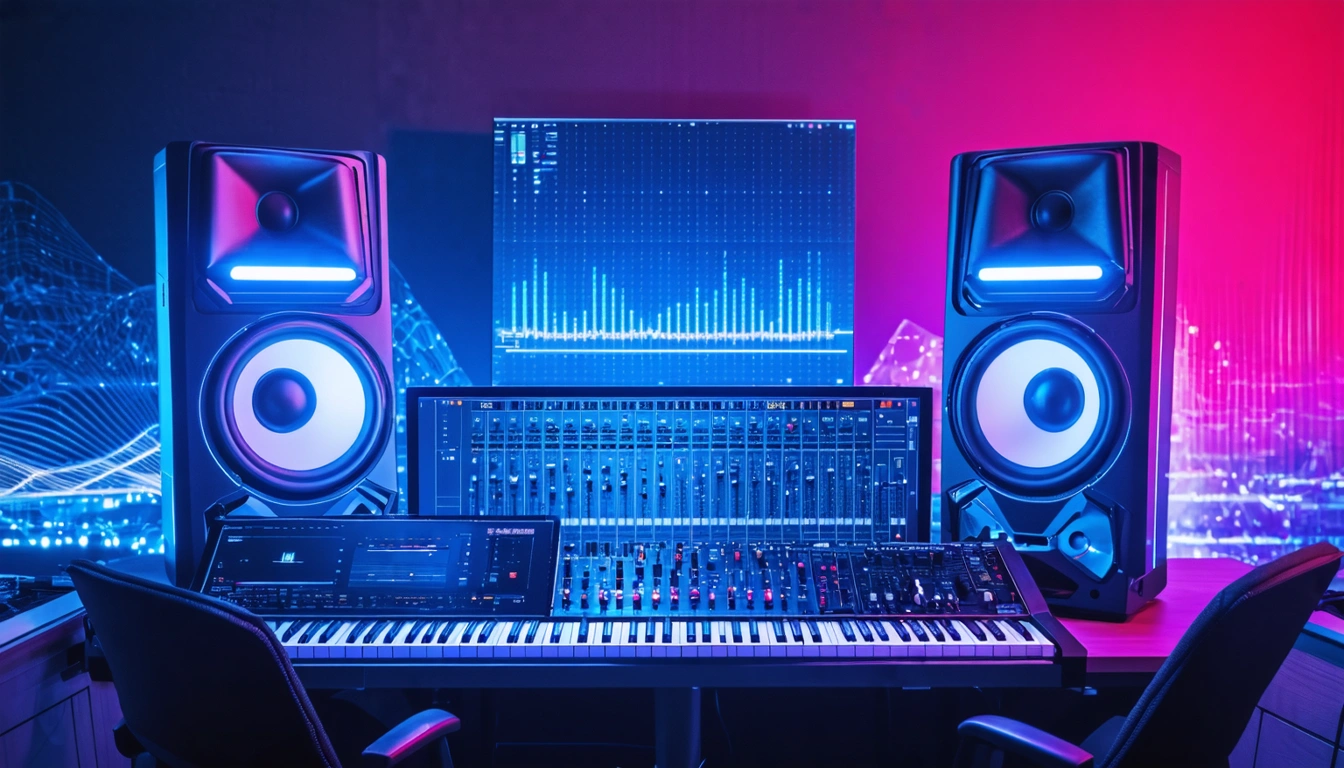Introduction
Artificial Intelligence (AI) is revolutionizing numerous sectors, and music production is no exception. The rapid advancements in AI technology have made it possible to perform tasks once reserved for seasoned professionals with just the click of a button. From extracting stems from any song to creating beats, AI is evolving from a mere number-cruncher to a bona fide artist.
The Advent of AI in Music Production
In recent years, the influx of AI tools in the music industry has been nothing short of astonishing. Various companies have emerged, offering AI beat makers, AI mastering software, AI sound selection, and even AI-generated chord progressions. This raises critical questions: How do these AI beat-making tools work? Are they genuinely effective, or are they merely marketing gimmicks?
How AI Beat Making Works
At its core, AI beat making involves feeding the AI vast amounts of music across multiple genres. The AI then analyzes this data, identifying patterns in melodies, chord progressions, instrument choices, rhythm, and other musical elements. After extensive studying, the AI can compose new music based on these existing patterns. While the specific codes and algorithms remain complex, the process mirrors a human learning approach: study and replicate.
Putting AI to the Test
To assess the effectiveness of AI in music production, an experiment was conducted. The challenge involved three participants: AI, an experienced producer, and a beginner producer. Each was tasked with creating three beats in three different genres: Pop, R&B, and Trap.
The Experiment Setup
- Beat Creation: Each participant created three beats, one in each genre.
- Listening Test: A group of friends listened to these beats and ranked them based on preference.
- Identification Test: The listeners then attempted to identify which beats were AI-generated.
Initial Reactions
The initial reactions to the AI-generated beats were mixed. Some beats were likened to background music for heart medication commercials, while others were praised for their energy and vibe. This variability in quality highlights one of the challenges of AI-generated music: consistency.
The Evaluation
Pop Genre
The Pop genre saw varied reactions. Beat A was described as generic and reminiscent of background music for commercials. Beat B had a bouncy rhythm but was likened to an ice cream truck tune. Beat C, however, stood out with its energy and positive vibe, earning it the top spot among the listeners.
R&B Genre
In the R&B genre, Beat A had a jarring intro and lacked melody, making it less appealing. Beat B, with its dope piano chords and smooth rhythm, was a favorite among listeners. Beat C, though decent, failed to impress compared to Beat B.
Trap Genre
The Trap genre saw a similar pattern. Beat A was hard-hitting and reminiscent of popular Trap music. Beat B, however, sounded very stock and lacked the punch of Beat A. Beat C had a good melody and soft drums, but it didn't hit as hard as the listeners expected.
Results and Insights
After tallying the rankings, it was clear that the experienced producer generally outperformed the AI, but not by a large margin. The AI came close, especially in the Trap genre, where it nearly matched the experienced producer's score.
Can We Hear the Difference?
Interestingly, listeners could only identify the AI-generated beats 40% of the time, indicating that AI is becoming adept at mimicking human-produced music. This raises important considerations about the future of music production and the role of AI.
The Future of AI in Music Production
While AI-generated music still has room for improvement, its rapid advancements suggest a promising future. However, the essence of music production lies in creativity and self-expression. AI may be able to replicate patterns and create technically sound music, but it lacks the human touch that brings emotion and originality to music.
Embracing Technology Without Losing Our Essence
As technology continues to evolve, it's crucial to embrace these advancements without losing sight of the artistic essence of music production. AI can be a valuable tool, but it should complement, not replace, human creativity.
"Music production and beat making are art forms. We shouldn’t do this just to sound good; we should do this to express ourselves and to be creative."
Conclusion
The rise of AI in music production is both exciting and challenging. While AI can produce impressive results, it still lacks the emotional depth and creativity that human producers bring to the table. As we move forward, it's essential to strike a balance between leveraging AI technology and preserving the unique, creative essence of music production.
Final Thoughts
AI in music production is here to stay, and its capabilities will only improve with time. However, the heart of music lies in human creativity, passion, and expression. As long as we hold on to these core values, AI will remain a tool to enhance our music, not replace it.
If you enjoyed this article, please leave a comment or share your thoughts. If you have any suggestions for future topics, feel free to let us know. And if you really liked this content, consider subscribing for more insights into the evolving world of music production.
